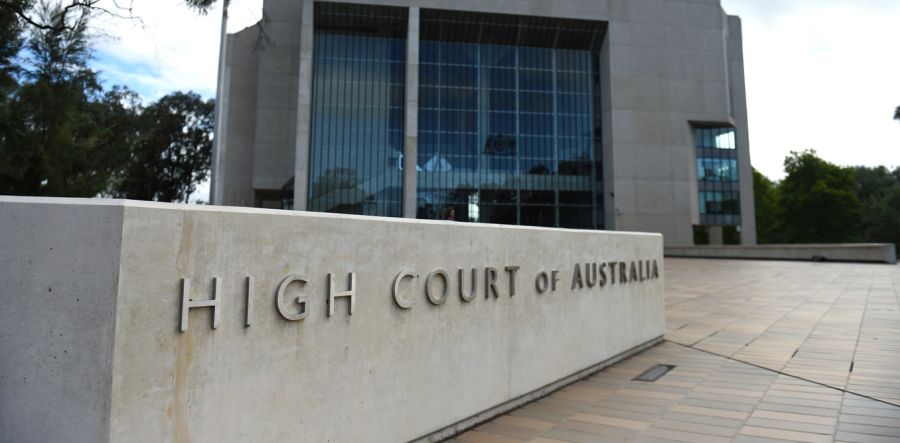
by Mary W Maxwell, LLB
The Australian Constitution of 1901 says in its Chapter III, section 72:
“The Justices of the High Court and of the other courts created by the Parliament:
- shall be appointed by the Governor-General in Council;
- shall not be removed except by the Governor-General in Council, on an address from both Houses of the Parliament in the same session, praying for such removal on the ground of proved misbehaviour or incapacity….”
And there you have it. Out they go.
The phrase “other courts created by Parliament” means Commonwealth parliament; this is not for state judges. It is, however for Family Court judges, as that court was created by Parliament.
Note that the “address from both Houses of Parliament” mentioned in Australia’s Constitution only “prays” to the Governor-General; it doesn’t tell the G-G he must act.
(By contrast, a majority of members of the US the House of Reps can impeach a federal judge, and then send it to the Senate for conviction. If a majority of senators vote to convict, the person is removed from office instantly without the need for a presidential signature.)
In Colonial Times
Before the Australian Constitution came into effect in 1901, making us a nation, each of the colonies had judges who were appointed by the Crown. To tip them out, for bad behavior, the colony could appeal to Britain to “amove” the bad judge. Ten judges – from various colonies – were so “amoved.” For example:
Tasmanian judge (technically, Van Diemen’s Land judge) Algernon Montagu (1802-1880) was amoved by the Lieutenant Governor over “questionable financial transactions.’
John Walpole Willis of Melbourne had previously been removed as a judge in Canada. His sins were “cantankerousness and foibles.” In 1842 he got the flick.
In South Australia, John Jeffcott (1800-1855) was the very first judge of the colony’s Supreme Court. He had been removed as judge of Sierra Leone for having killed a man in a duel. In SA however he was not amoved. He died by drowning in the River Murray.
Note that what these three judges had done was of a personal nature. This is almost always the case in America too. The most recent judge impeached by Congress was tipped out for being a “Dud Dad” in regard to paying child support. Another was impeached for hitting his wife.
No Australian judges in colonial times was punished for making a court ruling in a criminal fashion. And none since 1901 either.
Ah, aren’t judges immune in regard to any rulings they make from the bench? Well, yes, of course they have to be protected from civil actions for their judgements – or they might make lenient rulings in fear of being sued. But I am not talking about immunity from civil suit. I am talking about immunity from criminal charges.
As I have yelped many times at Gumshoe, there is only one person in Australia who is immune from criminal liability. “The king can do no wrong.” (I note that Sir Walter Scott challenged this, in regard to the throne in England but that is off-topic here.)
We are talking about judges. They are never immune. If they commit a crime they get punished like anyone else. And that crime could be something they do on the bench. Of course. That is where they can inflict a lot more harm than beating a wife or failing to pay child support.
Something Less Than the Full Judge-Overboard Punishment
Both in the US and Australia there are “boards” you can go to with a complaint about a judge. These boards are made up of judges. Will they actually discipline their colleague? They might, but one would not want to count on it.
In the US there is a so-called Judicial Conference; it meets annually in Lexington, Kentucky. It handles ethics business but other matters, too, such as upgrading court technology or problems of jurisdiction. It is presided over by the Chief Justice of the United States who appoints all its members.
The American Bar Association (please, God don’t let me say what I want to say about the ABA) has concocted a model Code of Ethics for judicial Conduct. For example
CANON 1
A judge shall uphold and promote the independence, integrity, and impartiality of the judiciary, and shall avoid impropriety and the appearance of impropriety.
CANON 2
A judge shall perform the duties of judicial office impartially, competently, and diligently.
CANON 3
A judge shall conduct the judge’s personal and extrajudicial activities to minimize the risk of conflict with the obligations of judicial office.
Surely you’d think anyone who is a judge does not need to be told those mundane rules. Probably, though, it helps a complaining citizen to be able to point to a specific breach.
In Australia, New South Wales is the only state with a set-up for making complaints against judges. If that board finds the matter serious enough it may get moved to the floor of Parliament.
In his Boyer Lecture of 1983, Justice Michael Kirby discussed the Australian Law Reform Commission’s consideration of setting up such a thing for the Commonwealth, but it met public resistance.
Crimes Committed by Judges in Office
There is material in the Crimes Act, Commonwealth, of 1914. (That is a model criminal code for any state wishing to adopt it.) Its Part III is devoted to Crimes in the administration of justice. Section 32 says that a judicial officer who
(b) corruptly gives, confers, or procures, or promises or offers to give, convert, procure, or attempt to procure to, upon, or for, any such judge, magistrate, or Commonwealth officer, any property or benefit of any kind, on account of any such act or omission on the part of the judge, magistrate, or officer; shall be guilty of an indictable offence. Penalty: Imprisonment for 10 years.
On Beyond “Corruption”
It is disappointing that attention is always focused on the judge’s selfish interest, such as swinging a case a certain way in exchange for money – as if this were the only type of corruption going on.
How about a provision for judges who do the wrong thing because someone is leaning on them, maybe has even threatened his/her life? It would be good to make that an indictable offense similar to taking a bribe. Once a provision is on the books at least people can talk about it.
(Is the reader thinking that judge should be let off the hook due to the threat he/she received? No. The idea of “diminished responsibility” only comes later, after a verdict that he or she did the wrong thing.)
What about the fact that many judges are placed in office to carry out the agenda of a sinister secret society? If he/she then obeys these instructions while in office, the essential crime is treason. But people find it hard to see the law against traitors. I think a specific law about judges doing these things needs to be enacted.
At the very least, every nominee to the bench should be asked to state is he/she is a member of a secret society.
Justice Angelo Vasta
As I said, since federation (1901) no federal judge has been removed from office in Australia. Only one state Supreme Court judge, Angelo Vasta of Queensland, was removed after a Commission of Inquiry reported to state parliament that he should be removed. Interestingly, a former Australia Chief Justice, Harry Gibbs, chaired that commission.
The matter on which Vasta was removed from the bench was his personal tax situation. Currently Bob Katter is seeking to have the 77-year-old judge exonerated and reinstated as a judge, saying he was unfairly treated.
It would be good to see how the Vasta debate goes, as one of the charges against Vasta had been perjury. We need to see more discussion of that crime, and in the interstices of that case there was a matter of four policemen having committed perjury. Wow.
Prosecuting a Judge
Many judges in the US have been convicted of crime. If you type “the judge was prosecuted” into a Google search (as I just did), you may get this headline from Oklahoma: Ex-judge Donald Thompson, busted for using penis pump during trials, has pension cut off.”
One remark in that article that I don’t understand is that Thompson’s exposing himself was said to violate his oath of office. I am unaware of the violation of an oath – as such — being a crime. Anyway he spent two years in prison.
In Australia the only High Court judge to have been prosecuted was Lionel Murphy. But it was a state court that did the prosecuting (regard to his previous behaviour as a state judge). He continued to sit on the High Court as he went through appeals of his conviction.
His case is complicated. He died at age 64 of cancer. I reckon “they’ gave him cancer in order that the threatened federal prosecution (and perhaps a tipping over) would never occur. Much dirt would have come out.
By the way his mugshot appears on Fiona Barnett’s famous gallery of pedophiles but none of them has ever been hauled before a court and I do not pretend to know that Fiona is correct as to each “candidate.”
In 1986, the material in the Lionel Murphy case was put under seal for 30 years. Hence it emerged into daylight in 2016. One item caught my eye. In regard to his desire to see a certain mafia company get a construction contract, Lionel had asked someone to find out if certain AFP police were “approachable.”’ The answer came back: “No, those two are straight.”
Two handy vocabulary words for us, Folks, in regard to Federal Police: “approachable” and “straight.”
Family Court
It is obvious that humans have an instinct for worshipping those high up. All judges should be respected, almost as God – they do the work of God. High standards should apply. But that does not mean they can be unaccountable. We have recently heard of judges doing horrible things in the Family Court in South Australia and Queensland.
Prosecutions are in order. But so is “tipping them overboard” which is a separate punishment. As stated, in Australia, the Constitution’s sec 72, gives Parliament the power to judge a judge.
Granted, our MPs can only “pray” to the G-G if they want to do a “judge overboard” thing, but that’s OK. They must do it, even if they think the Governor-General (the Crown) will overrule them.
Why have a Constitution if you don’t use it?
— Mary W Maxwell, LLB is the author of Fraud Upon the Court (2015) and a soon-to-be-released book, The Soul of Boston






























Excellent research thank you Mary
Mary, I am forever being educated by Gumshoe. I have never heard previously of a “penis pump”.
Now to be serious. Of course judges should be charged for criminal offenses when they misbehave
in court, as did justice Cox in the case of Martin Bryant fame. Before Martin was required to face the charges it was known by the Court that he was not fit intellectually to face those charges. When Bryant pleaded not guilty, Cox refused to accept the plea. However after Bryant had been coerced into pleading guilty, Cox immediately accepted that plea. He also afterwards accepted the award OAM and was the first Tasmanian to be appointed governor of that State. Not a pay-off?
Mal, the significance of the penis-pump judge is that they cut it off. I am referring to his pension.
I don’t know the states’ rules, but if a federal judge retires he gets his salary for life. But if you impeach a federal judge, that’s really a sacking and no pension would be available. (I assume most had a career before that, though, and would get a pension from that source.)
Mal, as you may recall Nixon was scared into resigning — he didn’t wait around to get impeached. If a federal judge today sees his/her name on a list of likely impeachments, he/she should do a Nixon and retire quickly for the aforementioned $$ reason.
Re Cox, I think he was a state supreme court judge, so the sec 72 bit from the Oz Con is not relevant.
Does the state con of Tassie tell us how to dump a judge? Amazingly, the Tasmanian Constitution has no section on the judiciary.
Spooky, huh? Correct me if I’m wrong (as I know you will, Mal).
In fact Dear Readers I beg for corrections on anything I say that is incorrect. Merci.
Excellent point to make, Mary.
In a democracy, the judge’s behavior should reflect public values, but this rarely happens. Currently, there does not appear to be any way to force the judiciary to recognise the will of the electorate and the Constitution makes no ruling on this either.
Thus, the judiciary does what it bloody well likes. As to corruption, I have witnessed plenty of this.
As a welfare officer, I was once summoned to Justice James Muirhead’s chambers and ordered to make welfare payments to his daughter, to which she was not entitled. Technically, the payments were a breach of Commonwealth Treasury Regulations.
Anyway, I refused and then reported this incident to the Director of Welfare, John McDonnell. The next day the Director ordered me to make the payments. He too had been summoned and was told that if he did not direct me to make the payments he would be exposed for making a false statement to the Wood Inquiry (or was that Woodward?). Blackmail, pure and simple.
His behavior was wildly inappropriate, Muirhead permitted the Police Prosecutor, who was a Navy reservist, to make such a poor prosecution case for a navy bloke who charged a car at an innocent group of Aborigines, injuring several and crippling two., that his only penalty was to lose his job. He should have ruled a mistrial.
When an incompetent welfare officer was manipulated into putting young children on a desert Island as a treatment for petrol-sniffing, Muirhead ruled this to be a “worthwhile experiment”.
He was the power behind the Royal Commission of Inquiry into $80 million Aboriginal Deaths in Custody Inquiry, for which there was no justifying evidence. When he realised this, he bailed out, citing failing health. The replacement Commissioners eventually concluded that there was no evidence police or prison officers had behaved illegally; and that more non-Aborigines died in custody than did indigenous. Purely to protect the credibility of royal commissions, and of Muirhead, government and the media have continued to pretend the findings were opposite. Which just goes to show nobody actually reads reports (except, evidently, me).
By the way, the full analysis of that Inquiry can be read on my website… oziz4oziz.com/
The conclusions of the Commissioners are printed verbatim.
Can I ask what the time frame was for this incident? I heard something two days ago, that might be relevent to Muirheads behaviour. Little johnny was involved in it.
Tony I am currently working on parts of the Transcript of the Four Corners report -re Australias Shame-in relation to my submission 2016 and the current Morrison Shorten “apology.”
I quote:
Caro Meldrum-Hanna: “Now, there are calls for the Federal Government to intervene.You are calling on Prime Minister Malcolm Turnbull to intervene?”
John B. Lawrence: “Absolutely. Stop it now. It has to stop. How can any country that claims to be civilised have a system of juvenile detention which includes what we’ve just described here? It’s just untenable.”
I feel you would know John Lawrence SC a Darwin barrister, a former Principle Lawyer at the North Australian Aboriginal Legal service a former president of the Northern Territory Bar Association and a former president of CLANT.
Some pertinent, relevant ,interesting reading can be found in these documents.
http://static1.1.sqspcdn.com/static/f/556710/27641405/1501468254520/Lawrence_Castan_Centre.pdf?token=PGomBmnEPzHvu7CMCiTlYBwpIjs%3D
https://www.monash.edu/__data/assets/pdf_file/0010/1046962/Lawrence.pdf
Tony, when you told me that Inquiry item last year i was surprised, but I trust you. However please clarify that you mean PROPORTIONALLY when you say:
“more non-Aborigines died in custody than did indigenous”
Also, you told us many deaths were from old age. OK, but surely there are cruel murders in prisons.
And do you know that some prisoners are required to wear a STUN BELT? That means the guard can zap them any time, including during sleep.
Nothing is more disgusting than our allowing the privatization of prisons. IMHO.
Penis pumps aside, this is serious business. The Family Court in Oz is obviously part of a racket of child-stealing and child-ruination. Its effects cannot be tolerated another minute.
The Parliament needs to tip all Fam-court judges overboard THIS AFTERNOON. It does not require any judicial fandangle. See sec 72 below.
Prime Minister, I nominate you to do it for the Lower House, and Pauline, you for the Senate.
Cops, I accuse any of you of the felony of misprision if you do not report the crimes of these judges.
Go on, do it. You’ll feel lighter after you do it. This whole thing is oppressing you too.
To repeat:
“The Justices of the High Court and of the other courts created by the Parliament:
shall be appointed by the Governor-General in Council;
shall not be removed except by the Governor-General in Council, on an address from both Houses of the Parliament in the same session, praying for such removal on the ground of proved misbehaviour or incapacity….”
Governor General Peter Cosgrove, I dare you to reject the prayer of Parliament.
Hmm. I think I see a Reverse-Dismssal in the making. From 1975 to 2018. How time flies.
Remember: Nothing succeeds like success.
.
https://www.youtube.com/watch?v=5j1dYi2Q_C0
Very interesting comments on judicial review Mary, thank you.
I was told by a magistrate when I fronted court over a parking fine recently, that the constitution does not apply in the courts in Australia. When I mentioned Covering Clause 5, Operation of the Constitution and Laws, I was promptly threatened with contempt of court.
I’ve since been told that I should have told him to rescue himself immediately or face Judicial Review.
So if we can get enough politicians on board perhaps we can get rid of some of those judges or perhaps even charge them with abetting child sexual abuse and violence by ignoring evidence. Who made that stupid law anyway that they can ignore evidence like sexually transmitted diseases, or children repeated disclosure. To me that should be a crime
‘Tis.
Exactly